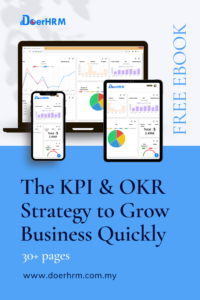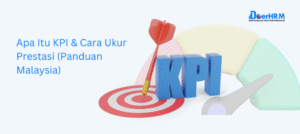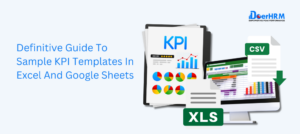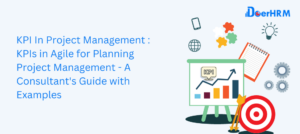Setting objectives as a business owner is the most efficient strategy to ensure you are making progress. When it comes to obtaining success in any business, the quality of objectives counts the most; choosing the wrong sort of goals can have big implications for the performance of your corporation. Success in achieving such goals must be assessed and analysed to ensure that your efforts have the desired impact at all levels.
But how can you know if the goals you’ve established are meaningful? How do you ensure you’re monitoring the right key performance indicators and not spending time on vanity metrics? Are you certain you’ve given yourself enough time to complete each goal?
SMART Goal setting can help you determine the tool and measure you need to adopt to reach a goal within a realistic time period, whether you need to spend time re-evaluating your content marketing strategy or create strategic goals for your sales team.
Businesses employ numerous KPIs for this purpose. KPIs are created by combining and comparing a few statistical data points, known as metrics.
In brief, your accomplishments should be reflected in some significant statistical data, particularly metrics, which will then be compared to other critical metrics to determine the influence of your efforts on certain KPIs.
What are the types of Metrics?
There are different sorts of metrics, and just a few of them are important to your organisation. As a result, your goals must be connected to metrics that may be used to measure performance and progress levels versus the goals.
Others are not useful in judging your progress. Vanity metrics, for example, might offer you a false sense of accomplishment while not helping to measure your organisation’s progress. Instead, you should use SMART measures to track your progress.
What exactly are SMART KPIs?
Successful organisations select objectives and their related metrics using goal-setting frameworks. There are several goal-setting frameworks available, and selecting one that aligns with smart metrics can help organisations achieve their objectives.
The issue over OKRs vs. KPIs for achieving business results is strongly related to smart metrics. OKRs are a simple and effective way to create company goals, whereas KPIs monitor a specific part of the company. Both may help businesses bridge the strategy execution gap by working collaboratively.
Specific, Measurable, Achievable, Relevant, and Time-bound are the acronyms for SMART KPI goals.
Specific: The goal should be numerically measurable. For example, the sales team may set a particular objective of increasing the number of units sold by 10% over the previous quarter. It is a clear objective with no ambiguity, and the SMART KPIs for this goal is the sales target.’
Measurable: The target achievement should be measurable so that management can determine how much of the objective the team has done. The SMART KPIs may be carefully quantified using the sales target metric by comparing current sales data to those from the prior review period.
Achievable: While pushing the limits and going further each time is essential for successful goal-setting and achievement, ambitions should also be achievable. The goal is to strike the correct balance between ambition and realisticness. For example, in the Objectives and Key Results (OKR) goal-setting system, the ideal practice is to establish stretch objectives, where the outcomes and successes are monitored using SMART KPIs. The objective associated with the metric sales target, for example, must be defined based on the prior performance of people and teams, while rising in line with corporate goals. If there are excessively high goals compared to what the team has previously accomplished, employees may struggle to meet them on time, resulting in a loss of motivation. If it is set too low, it will be easily reached, and the company goals will not be met.
Relevant: The SMART KPIs target should be matched with the organisation’s objectives. For example, if your organisation’s goal is to achieve a 10% increase in sales growth, another essential indicator, then the sales target should be relevant to the organisation’s goal and should be increased to comparable levels. Otherwise, the sales objective will be meaningless.
Time-bound: The objective should be accomplished within a specific time frame, and successes should only be measured within that time frame. For example, if year-on-year sales growth is predicted to be 10%, the sales objective for the year should be 10%. Achieving 10% after a year is considered a failure.
What are the importance of SMART KPIs?
- SMART KPIs provide teams with clarity. When SMART objectives are established, they provide teams with clarity on what they need to do, what the aim is, and how they will assess success. Key metrics, also known as key performance indicators (KPIs), are used to measure the achievement of specified goals. This allows the team to concentrate on what is important and work toward its objectives.
- SMART KPIs ensure that evaluations are fair and objective. When goal success is monitored using SMART metrics, there is no other way to misunderstand the results. The evaluation must be based only on data in order to be fair and objective.
- SMART KPIs enable you to monitor progress. Because they are explicit and measurable, SMART metrics allow people and teams to measure their progress toward their goals. This enables employees to refer to the data and stay on pace to meet their objectives by the deadline.
- SMART KPIs bring motivation to the team. When objectives and measurement procedures are based on recent performance and future requirements, employees feel motivated since the goals are realistic and achievable, while being ambitious. They instil in employees the courage to push the boundaries as far as they can.
- SMART KPIs allow you to confirm that your goals are aligned with the objectives of your business. SMART goals are aligned with corporate goals. As a result, any progress toward these objectives must result in outcomes that contribute to the organisation’s success. Otherwise, the SMART metrics will highlight a lack of alignment, allowing leadership to make swift course changes.
- SMART KPIs help in evaluating the effectiveness of actions and activities. SMART measurements assist you in determining whether your activities are achieving the expected results. This helps you identify adjustments that are needed in your operations and allows teams to maximise their action plan and performance.
Conclusion
You manage what you measure, so set SMART KPIs that are precise, measurable, achievable, realistic, relevant, and time-bound. These goals might help you in ensuring that your company grows.
When our team began to develop SMART KPIs, we began to see ourselves grow in places we never expected to grow before since we had a clear strategy. We had a precise goal in mind, and we were able to track and assess our progress along the way, making adjustments as needed. This has benefited our business, brand, and team in providing better service to our clients.
Using SMART KPIs to measure and monitor our business on a regular basis allows us to re-strategize and correct courses without wasting time. As Peter Drucker once said, “What gets measured gets done,” thus organisations will profit greatly from incorporating SMART KPIs into their daily operations.
Book a free demo with our team to discover more about how OKR and KPI software can improve the performance of your business by connecting your goals with measurable key results.









